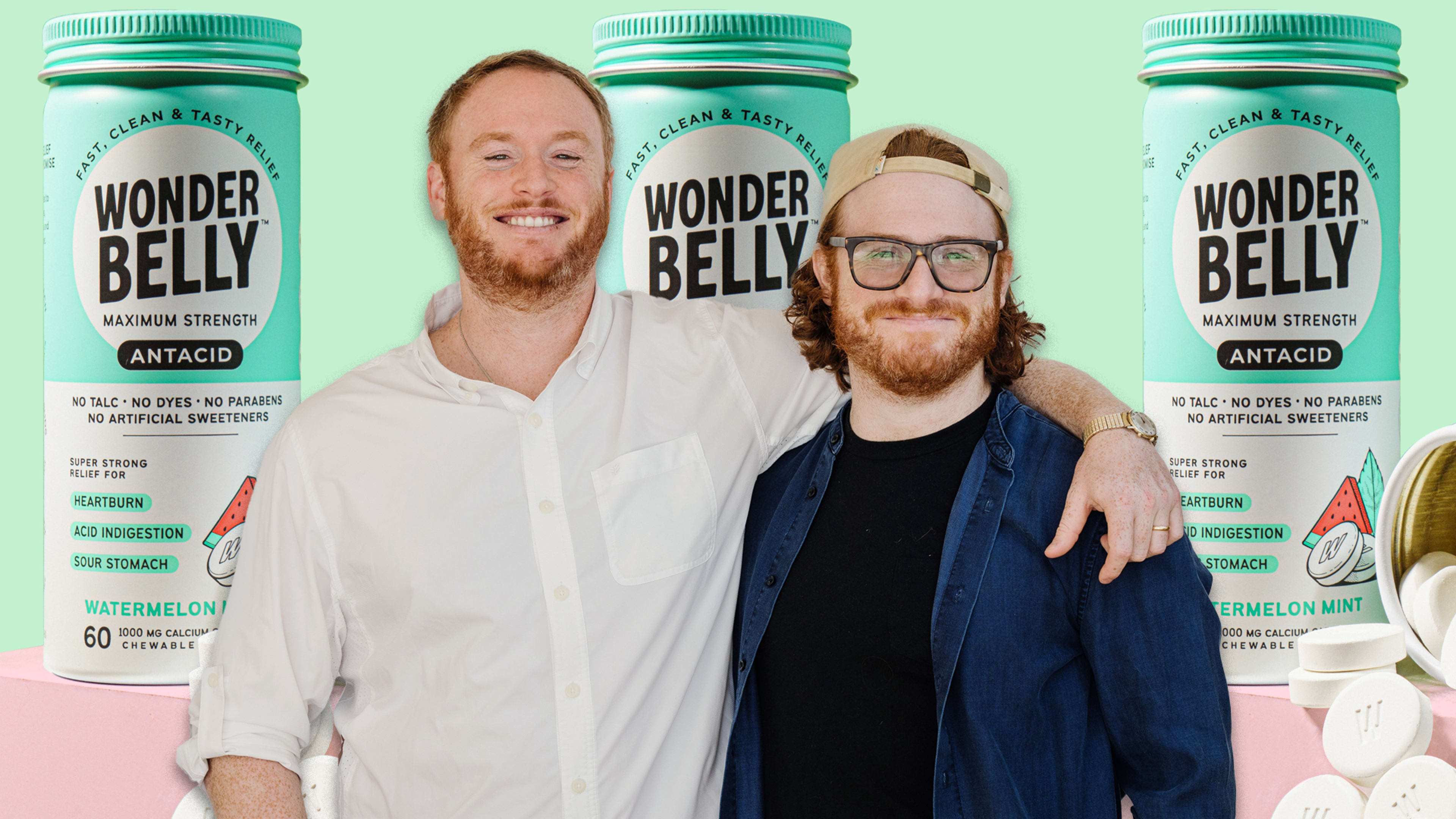It takes a minute to find the Austin offices of Noah Kraft and Lucas Kraft, the red-headed brothers behind Wonderbelly, a new antacid heartburn reliever. They’re tucked up on the attic floor of a historic building on the city’s East Side, where startups like this one share real estate with new condos and veteran bars. Colorful rugs and a slew of Mac-topped desks dress up the low-ceilinged rooms, and evidence of late nights—a 12-cup coffee maker, a microwave, and bags of takeout—lurk in the corners. It’s exactly the kind of “before” office that the Kraft brothers might remember with nostalgia if Wonderbelly succeeds in challenging legacy brands such as Tums and Pepcid AC—and giving them indigestion.
Wonderbelly is an FDA-regulated, over-the-counter medicine and, like Tums, has one active ingredient: calcium carbonate. What differentiates Wonderbelly from competitors is its inactive ingredients, which steer clear of things like talc, dyes, and parabens found in other brands. In late March, Wonderbelly landed on the shelves of Target stores nationwide, its all-aluminum cylinders facing off with Tums and Alka-Seltzer in the drugstore aisle. The team has also developed the Wonderbelly app, launching April 12, which helps people track and manage their digestive health with tools to log meals and symptoms and identify triggers and relief options.
In a baseball cap that’s managed to tame an enviable head of hair, Lucas Kraft, 32, opens up about the motivation behind Wonderbelly: his own nine-year battle with bulimia. Although he has recovered, the disease wreaked havoc on his digestive system, and he relies on medicines to tame gastroesophageal reflux disease (GERD) on a daily basis. He gave little thought to what was in consumer-trusted brands until April 2020 when the FDA recalled the heartburn medication Zantac because of a carcinogenic ingredient, N-Nitrosodimethylamine (NDMA). In February, Bloomberg reported that Zantac knew of the cancer risk for more than 40 years but did not disclose it.

While the recall was buried in a health news cycle dominated by COVID-19, it immediately grabbed Lucas’s attention. “Here I was taking a combination of antacids and acid reducers on a daily basis, including Zantac and Tums, and I realized I had no idea what was in them,” he says, his frustration still raw despite the well-practiced sales pitch. Growing up in California, he’d never considered examining the ingredients in his medications in the same way he had become accustomed to doing so for food and household products.
Recognize your brand’s excellence by applying to this year’s Brands That Matter Awards before the final deadline, June 7.
Sign up for Brands That Matter notifications here.
